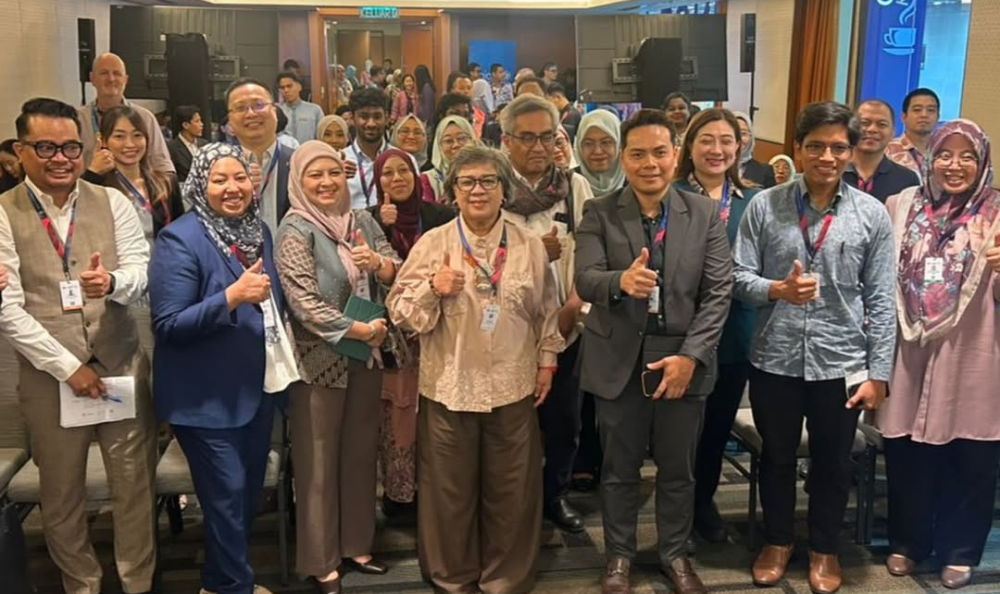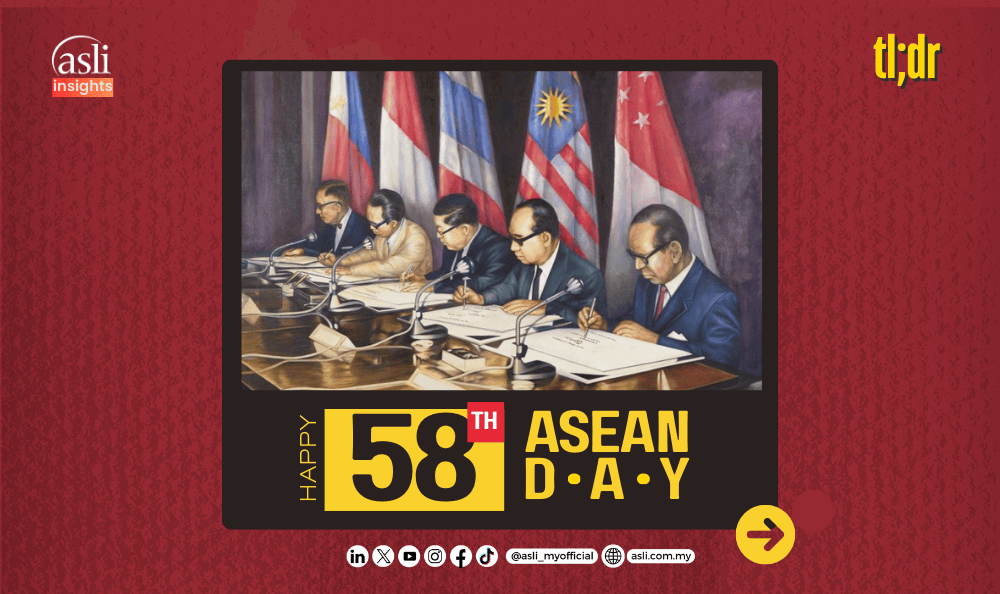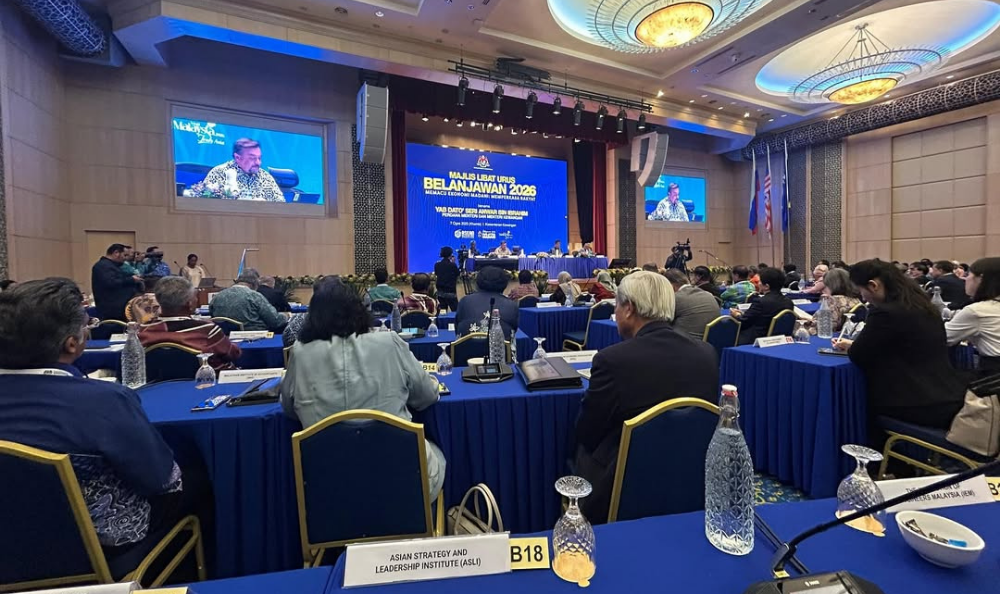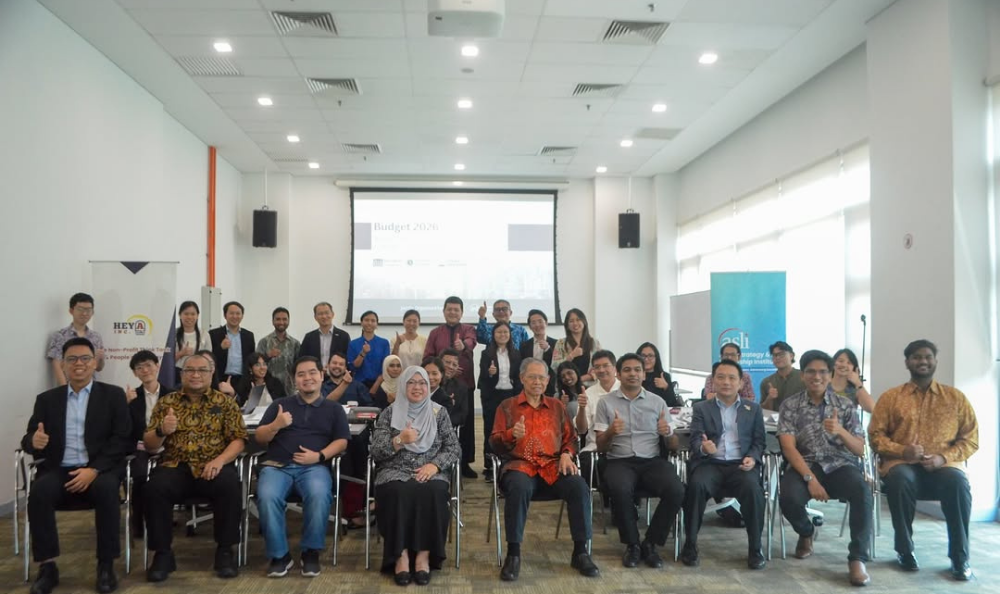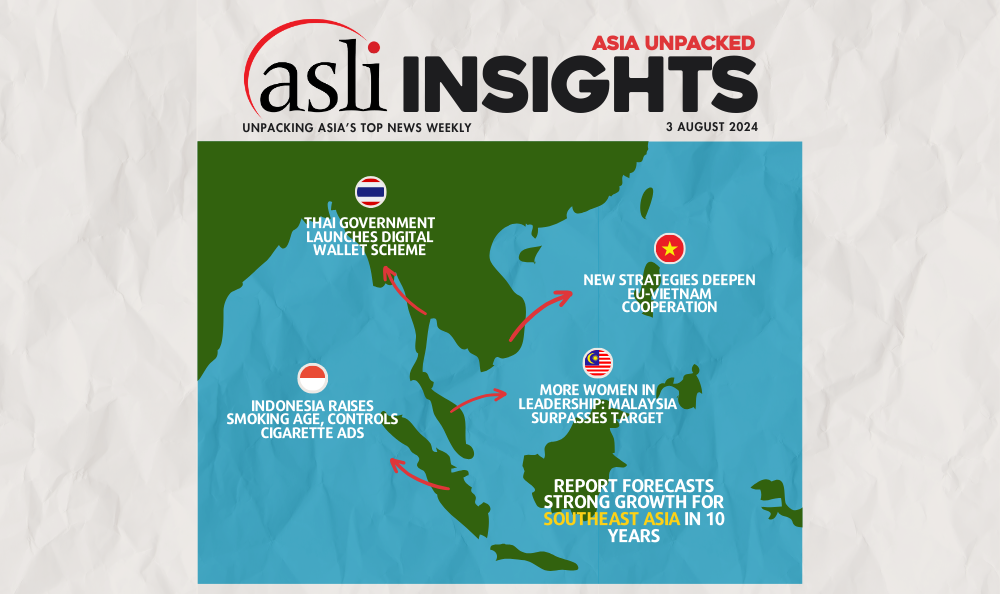
ASLI INSIGHTS: Asia Unpacked | 3 August 2024
ASLI is back with more ASLI INSIGHTS: Asia Unpacked!
Stay tuned for more top news in Asia handpicked by ASLI and for our curated weekly roundup!
This week’s Asia top news:
1) Thai Government Launches Digital Wallet Scheme
Thailand's government has opened registration for its digital wallet scheme on August 1, allowing smartphone users to sign up through the "Thang Rat" app starting at 8am. Registration will be open 24/7, with a second registration period for those without smartphones running from September 16 to October 15. Individuals must use an ID card and verify their qualifications to access the 10,000 baht handout. The government has established 5,199 walk-in service points nationwide, including community digital centres, post offices, and banks, to assist with registration and inquiries. The scheme aims to boost economic activity, alleviate living costs, and support Thailand’s digital economy. For more information, visit the official websites or hotline.
Read more here:
- https://www.nationthailand.com/news/general/40040174
- https://www.thestar.com.my/aseanplus/aseanplus-news/2024/07/31/thai-govt-ready-to-start-digital-wallet-scheme-registration-on-aug-1
2) New Strategies Deepen EU-Vietnam Cooperation
During his visit to Vietnam from July 29-31, EU High Representative Josep Borrell Fontelles underscored Vietnam's importance as a key regional partner and expressed commitment to enhancing bilateral relations. Meeting with President To Lam, Fontelles was thanked for the EU's support and participation in recent significant events, such as the funeral of late Party General Secretary Nguyen Phu Trong. President Lam highlighted the positive trajectory of Vietnam-EU relations, including the successful implementation of the Vietnam-EU Free Trade Agreement (EVFTA) and growing cooperation in various fields. He urged further collaboration on the EVIPA, seafood export issues, and support for Vietnam’s Just Energy Transition Partnership (JETP). Both sides reaffirmed their commitment to regional stability and peaceful conflict resolution, especially regarding the East Sea, in accordance with international law.
Read more here:
3) Report Forecasts Strong Growth for Southeast Asia in 10 Years
The top six Southeast Asian economies—Vietnam, the Philippines, Indonesia, Malaysia, Thailand, and Singapore—are projected to grow at an average annual rate of 5.1% over the next decade, according to the report "Navigating High Winds: Southeast Asia Outlook 2024-2034" by DBS Bank, Bain & Company, and the Angsana Council. These economies will benefit from a market of over 600 million consumers and strong trade links. However, they will face challenges from increased protectionism and gradual deindustrialisation. Singapore is expected to grow at an average annual rate of 2.5%, driven by advanced manufacturing, services, and tourism, but limited by demographic challenges, land and labour constraints, and higher business costs.
Read more here:
4) More Women in Leadership: Malaysia Surpasses Target
Datuk Seri Nancy Shukri, Women, Family and Community Development Minister of Malaysia, announced that Malaysia has surpassed its target for women in leadership roles. Currently, 38.9% of decision-making posts in the public sector and 30.7% of directors in the top 100 public listed companies are women, exceeding the 2030 goal. This success is attributed to government initiatives like board diversity policies. Despite achieving 61.2% female enrolment in higher education, female labour force participation stands at only 55.8% compared to men's 81.9%, with a goal to reach 60% by 2030. Women remain underrepresented in STEM and politics. Legislative progress includes the Anti-Sexual Harassment Act, criminalisation of stalking, and amendments to the Employment Act and Financial Services Act.
Read more here:
- https://asianews.network/malaysia-surpasses-target-for-women-in-leadership-positions/
- https://www.thestar.com.my/news/nation/2024/07/29/more-women-at-the-helm
5) Indonesia Raises Smoking Age, Controls Cigarette Ads
Indonesia has raised the minimum age for purchasing cigarettes from 18 to 21 as part of new health regulations aimed at reducing smoking rates. The country, with one of the highest smoking rates globally, has around 70 million adult smokers. The new law, signed by President Joko Widodo, also bans the sale of single cigarettes and restricts cigarette sales within 200 metres of schools and playgrounds. It includes a ban on advertising cigarettes on social media without age verification, effective in two years. The regulations intend to lower smoking prevalence, especially among youth. Critics argue that while some provisions are positive, stricter enforcement and additional regulations are needed. The tobacco industry warns that these rules could harm their business.
Read more here:
🌱 Empowering Leaders, Advancing Societies.
#ASLI #EmpoweringLeaders #AdvancingSocieties #Asia #News #Thailand #Vietnam #SoutheastAsia #Malaysia #Indonesia
